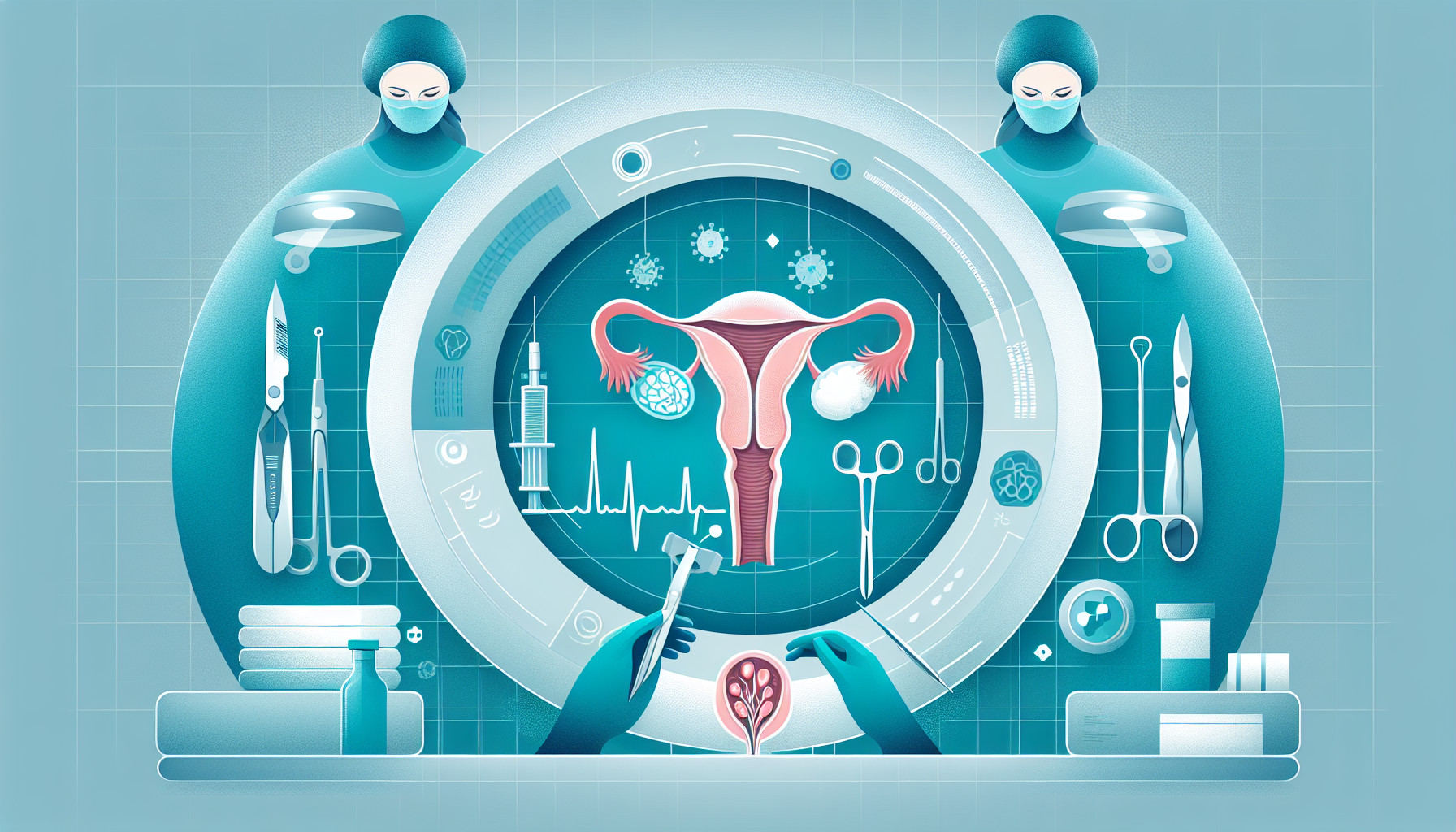Our Summary
This study looked at patients who had laparoscopic surgery to remove benign (non-cancerous) ovarian cysts. They wanted to see if there was a difference in short and long term outcomes between patients where the cyst “spilled” during surgery and those where it didn’t. The study involved 186 cases of ovarian cyst removal, with spillage occurring in 104 of these cases. They found that larger cysts and the presence of adhesions (scar tissue sticking tissues together) in the abdomen made spillage more likely. Using a special bag during the procedure made spillage less likely. However, whether spillage occurred or not didn’t seem to affect the chances of complications after surgery, how long the patient stayed in the hospital, whether they got a fever, or if the cyst came back. So, while spillage might happen more often with larger cysts or in patients with adhesions, it doesn’t seem to make a difference to the patient’s outcome.
FAQs
- Does spillage during ovarian cyst removal increase the chance of complications after surgery?
- Does the size of the cyst or presence of adhesions in the abdomen affect the likelihood of spillage during surgery?
- Does using a special bag during the procedure reduce the chance of spillage during ovarian cyst removal?
Doctor’s Tip
A helpful tip a doctor might tell a patient about ovarian cyst removal is to discuss the size of the cyst and the presence of adhesions with their surgeon before the procedure. This information can help the surgeon take appropriate precautions, such as using a special bag during the surgery, to minimize the risk of spillage. It’s also important for the patient to follow their surgeon’s post-operative instructions carefully to ensure a smooth recovery.
Suitable For
Patients who are typically recommended ovarian cyst removal include those with:
- Large cysts
- Cysts that are causing symptoms such as pelvic pain, bloating, or difficulty urinating
- Cysts that are suspicious for cancer
- Cysts that are growing or changing in size
- Cysts that persist or recur after initial treatment
- Cysts that are causing infertility or affecting fertility treatment
It is important for patients to discuss their individual case with their healthcare provider to determine if ovarian cyst removal is necessary and the best course of action for their specific situation.
Timeline
Before ovarian cyst removal:
- Patient may experience symptoms such as pelvic pain, bloating, or changes in menstrual cycle
- Patient may undergo imaging tests such as ultrasounds or MRIs to diagnose the cyst
- Patient may discuss treatment options with their healthcare provider, including the possibility of surgery
- Patient may undergo pre-operative tests and evaluations to ensure they are healthy enough for surgery
After ovarian cyst removal:
- Patient will likely experience some pain and discomfort in the days following surgery
- Patient may be prescribed pain medication to manage post-operative pain
- Patient may have restrictions on physical activity and lifting for a period of time after surgery
- Patient will have follow-up appointments with their healthcare provider to monitor their recovery and ensure there are no complications
- Patient may experience relief from their previous symptoms, such as pelvic pain or bloating, once the cyst is removed
Overall, the timeline of a patient’s experience before and after ovarian cyst removal involves diagnosis, treatment planning, surgery, recovery, and follow-up care to ensure a successful outcome.
What to Ask Your Doctor
What is the reason for removing the ovarian cyst?
What are the risks and potential complications associated with ovarian cyst removal surgery?
What is the expected recovery time after the surgery?
Will there be any restrictions or limitations on activities following the surgery?
How will the surgery be performed (laparoscopic or open surgery)?
What are the chances of the cyst spilling during the surgery, and how will this affect the outcome?
Will the cyst be sent for further testing after removal?
What are the chances of the cyst coming back after removal?
What are the alternatives to surgery for treating the ovarian cyst?
How often will follow-up appointments be needed after the surgery?
Reference
Authors: Hizkiyahu R, Yahav L, Yakovi S, Davidesko S, Abecassis A, Weintraub AY. Journal: Surg Endosc. 2020 Sep;34(9):3883-3887. doi: 10.1007/s00464-019-07154-6. Epub 2019 Oct 4. PMID: 31586249
